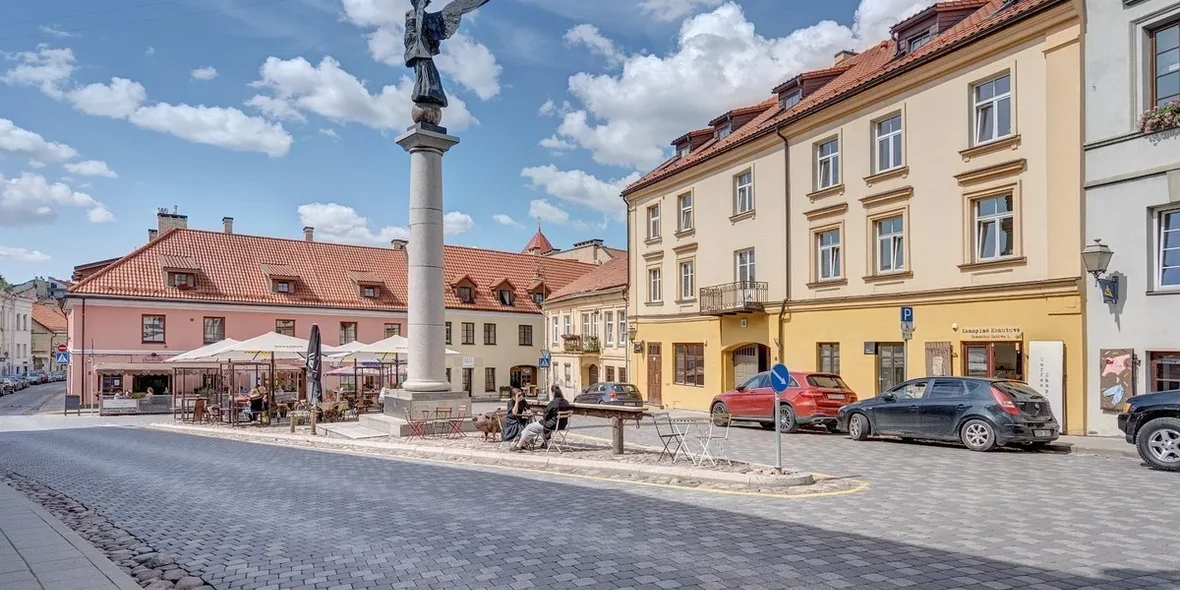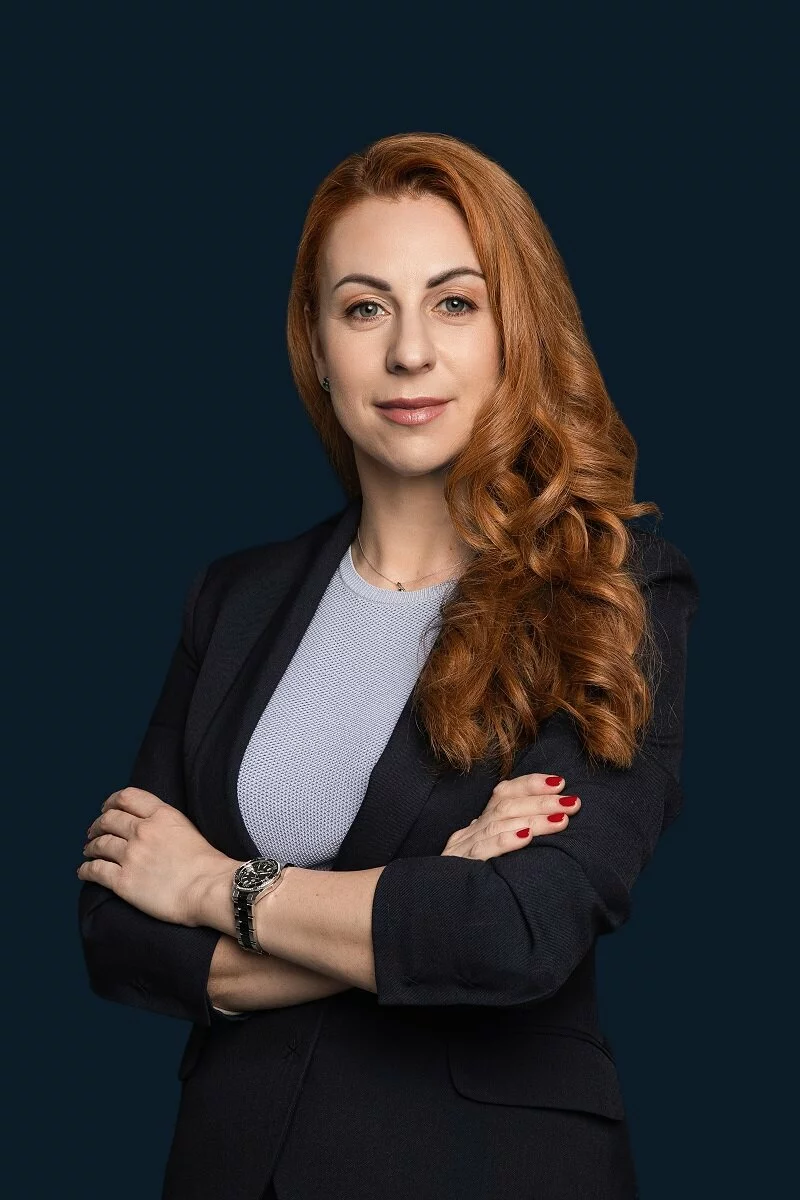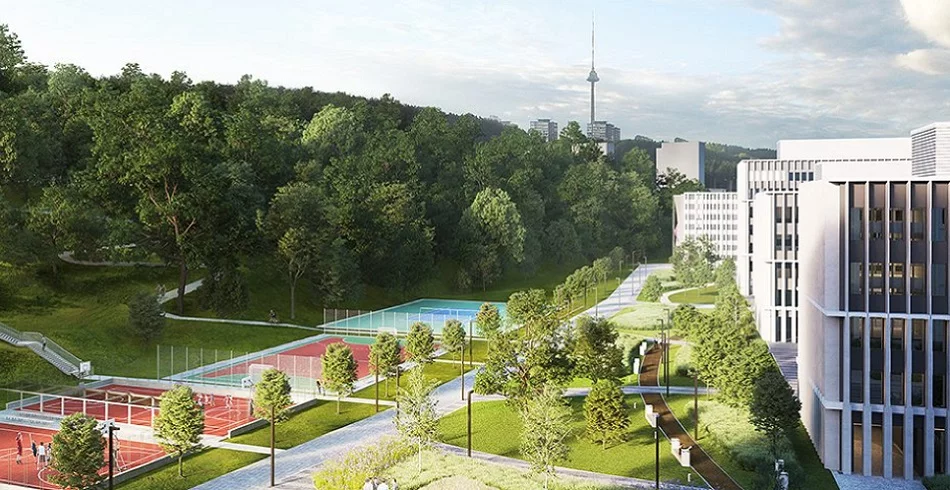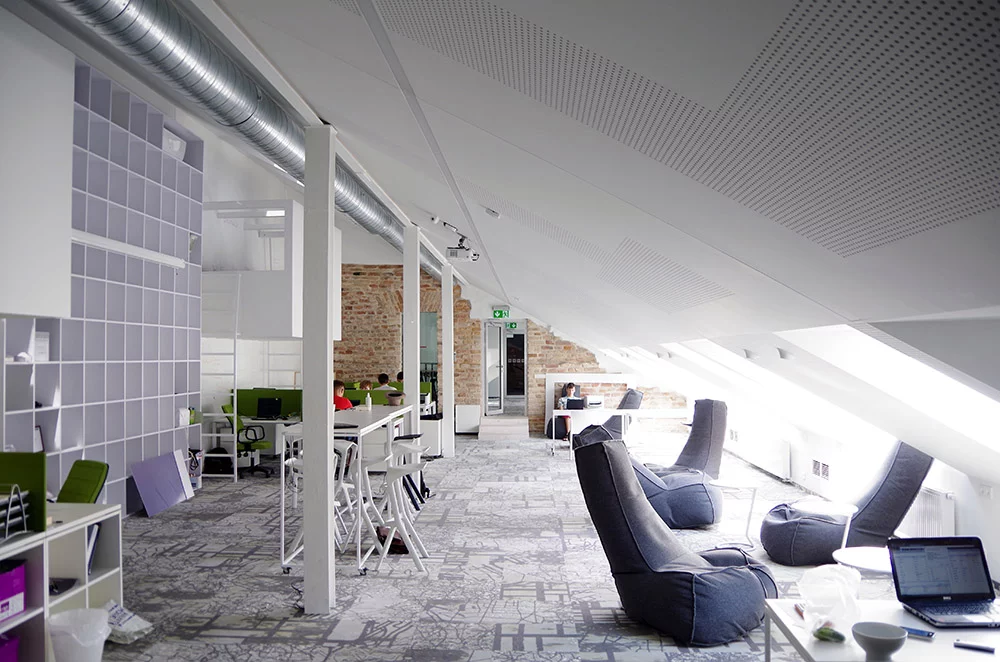
«Lithuania is attracting more and more investors.» The Managing Director of AN Capital Commercial on why sellers set bargain prices for real estate
We can already assure that economy has fully felt the consequences of the coronavirus pandemic on a global scale. Certain sectors (for example, tourism) have been hit particularly hard and this has led to a crisis for some countries. In this context, the rather low economic downturn in Lithuania arouses genuine interest. As a result, the country has become even more attractive to investors than it used to be. At the same time, the purchase of real estate remains an essential area of investment. To better understand what Lithuanian real estate properties are worth investing in now and what to look for in the first place, we turned to competent market experts: specialists from the Capital Commercial real estate agency.
«A crisis is the best time for profitable purchases»
With an overall economic downturn in the Baltic countries in 2020, the recession in Lithuania, Latvia and Estonia showed one of the lowest indicators compared to other EU countries. According to statistics, Lithuania’s GDP fell slightly — by only 0.8%, and this is the lowest number among the Baltic countries. According to experts, the projected economic growth for 2021 is 4-5%, and the average annual inflation does not exceed 2.2%.
This optimistic forecast attracted investors from all over the world to Lithuania. At the same time, part of the funds raised were taken over by real estate, both commercial and residential.
 — The Lithuania of the second half of 2021 is wonderful because you can find interesting objects, both residential and commercial: real estate for all budgets. For example, there are office or retail premises now for sale in old buildings (over 10 years after construction — author’s note) in Vilnius at an attractive price — from 1000 € per square meter.
— The Lithuania of the second half of 2021 is wonderful because you can find interesting objects, both residential and commercial: real estate for all budgets. For example, there are office or retail premises now for sale in old buildings (over 10 years after construction — author’s note) in Vilnius at an attractive price — from 1000 € per square meter.
The acquisition of leased commercial real estate can also be a profitable investment these days, but you need to carefully study the situation, — said Yulia Tislenko, Managing Director of the Capital Commercial real estate agency.
— If we look at the residential real estate market, you can now find profitable objects in the residential areas of Vilnius, built in residential complexes with a developed social infrastructure, and at the same time, apartments appear on sale in the center of the capital: acquiring one guarantees the liquidity of the investment, since real estate prices in the area will be kept at a high level.
At the same time, those who wanted to drastically convert money into square meters have already done so, and now we can observe some stabilization of the market. Perhaps the reason for this was the very «peak» of the holiday season, but, in general terms, the «boom» that we saw on the market in the last 3-4 months has already blown over.
Sales continue, and the number of transactions is still great, but if you could have 10 to 15 buyers applying for one good apartment earlier, this figure has now dropped to at least half. The excitement of the first half of 2021 has passed, and that is good: now investors have entered the game, and they are well aware that a crisis is the best time for profitable purchases.
Interesting investment pockets appear on the commercial real estate market
As you know, a crisis implies, on the one hand, large economic losses, and on the other, a point of financial growth. While some shopping or food sites were forced to close because of the pandemic, there are business areas that are now «on a roll»: the IT sector, medicine, construction and logistics. All these businesses are increasing the area of their rented premises, giving preference to new projects. Thus, a tendency towards the centralization of the workspace has been identified in the market.
The attractiveness of Lithuania as a location for the divisions of large international companies has led to a sharp increase in the demand for office and commercial real estate over the past 5 years. According to NewSec, despite the fact that the area of all concluded lease agreements combined in the second quarter of 2021 was 14,300 square meters, the results for the last half year are already more than 45 thousand square meters. At the same time, two thirds of the leased area accounted for transactions of 500 square meters or more. Total market vacancy fell from 7.1% to 6.6% in the second quarter, while vacancy in Class A offices fell more significantly, from 5.9% to 4.9%.
More and more international companies are locating their offices in Lithuania, most often in Vilnius. Large local and international tenants are entering the market, filling newly built business centers:
— The Lithuanian developer Galio Group has a project: the «Freedom 36» business center, where the total investment amounted to more than 30 million euros. It is a multifunctional business center with its own fitness room, library and recreation areas, but located in an old residential area of Vilnius (Karoliniskes). However, at 95% completion, most of its space was still not rented, and the developer was seriously thinking about lowering prices. However, the situation was resolved in just a month. One of the largest logistics companies in Europe, GIRTEKA LOGISTICS, has become the anchor tenant of this business center’s office space.

Photo source: galio.lt
— Large companies are moving from old buildings to new office spaces, streamlining business processes as well as improving working conditions for their employees. Having a central location is ceasing to be a decisive factor when choosing the location of the new offices. For example, the state-owned electricity company Ignitis Group, which occupied three iconic locations in an area of the old city of Vilnius, will soon move to the Business Garden Vilnius business center. This business center is located on the outskirts, but is built on the principle of «a city within a city», so employees of the company will not have to go anywhere if they want to play sports or relax. There will be gyms, tennis courts, restaurants, ponds with walking paths, shops and beauty salons — many have special loyalty systems for employees. It turns out that working and actually living in such a location will be very, very convenient.
The rent for class A offices is now 15-18 €; for class B, 11-14.5 € per square meter. Such a large gap led to the fact that the owners of office premises in old buildings were faced with a choice: to invest in the modernization of their facilities (to improve their characteristics up to class A standards) or to look for tenants at a price corresponding to class B. We should not forget newly built areas, which were erected according to European standards right away. This is the segment where interesting objects for investment appear.
Developers, anticipating the deferred demand, began to build even more commercial real estate, and in 2020 Lithuania received a record number of new office spaces — more than 100 thousand square meters. Following the completion of these projects, Ober-Haus reported that the total area of used modern office space (class A and B) had grown by 13% to 887,000 sqm at the end of 2020. A record number of office spaces will be built in Vilnius in 2021, exceeding the level recorded in 2020. Thus, the Vilnius market will be at its largest in history, with over 135,000 sq. m of usable office space. In terms of area, class A offices make up 43% of the total number of modern office premises in Vilnius; while 57% are class B.
— At the same time, there are no signs that indicate that commercial real estate projects may be frozen. There are a number of buildings slated for completion in late 2021 or Q1 2022 that will add to the office real estate market, thus meeting strong international and local demand.

Photo source: vastint.eu
Previously popular «flexible offices» / corporate coworking spaces are now not in their best position
Timely adapting to modern demands is one of the main qualities of a successful business. 2017 gave a breath of fresh air to a new format of commercial real estate — «flexible» offices or coworking spaces. Inexpensive and flexible workplaces were supposed to provide companies with even more opportunities for the comfort of their employees. Over time, many similar locations have opened in Vilnius: Workland with an area of ~ 1600 sq.m., Regus with an area of ~ 1500 sq.m., Monday Office with an area of ~ 460 sq.m., Tech Loft for IT and other companies in the sphere of technological innovation, including coworking spaces for individuals, small teams, etc.
However, the pace of development of such «flexible» office space is not so fast anymore. Pandemic-related restrictions have negatively affected such spaces:
— During the pandemic, it became very difficult to ensure the safety of the health of employees in coworking spaces. We receive many letters from companies that want to sell such spaces asking us to find tenants. The high vacancy rate for flexible office space has led to some coworking spaces being converted into full-fledged offices for individual companies. And we have seen situations when large companies refused to rent standard office space due to employees working remotely, so they bought memberships in coworking spaces, securing some kind of separate space. But objectively there were not too many such cases, therefore, coworking spaces should not be considered as an investment either.

Photo source: 34travel.me
«There are commercial real estate objects that are suitable for long-term investments, and there are those that should be treated with caution.»
What should an investor pay attention to? First and foremost, the presence of long-term tenants. The second relevant factor is the location of the commercial property in terms of its prospects.
— Commercial premises with a total area of 80-120 square meters on the first floors of buildings with a separate entrance literally sell like hot cakes. Taking the pandemic-related restrictions into account, such spaces are very promising now since they are in high demand. For example, the estimated value of one actually sold object was about € 450 thousand, and the deal was closed for € 650 thousand.
But, in general, everything depends on the investors and what their goals are. There are business centers that are not willing to reduce prices, knowingly agreeing to short-term leases. There are also owners of commercial real estate who compromised with their tenants: they agreed to provide more favorable prices, additional parking spaces or some other bonuses, expecting long-term lease agreements in return (from 3 to 5 years without the possibility of termination). And now the attractiveness of the second category of business centers for investors is growing by the day; therefore, buying commercial spaces with guaranteed lease agreements is a profitable long-term investment.
On the other hand, there are commercial premises in small towns in Lithuania which are now being actively sold. I would be wary of such objects. After all, there is a tendency all over the world to relocate residents to larger cities, and therefore, it is rather difficult to both ensure long-term lease agreements and guarantee customer flows in such locations.
The so-called «bank» real estate has recently become a separate area for investment. These are real estate objects that are on the balance sheet of banks and are sold through auctions. The price of such objects, as a rule, is much lower than their market value, which is why some, especially the «sweetest» ones, are sold prior to entering the official auction. It is precisely in this case that the services of the real estate agency Capital Commercial are needed: with the help of its established contacts and experience, it can include the investor in the list of potential buyers of such objects.
At the same time, there actually isn’t an ideal «recipe» for investment — it is always a combination of many factors, analytics and the work of a competent broker. If all these «stars» align, the investor will find their very own «goldmine»!
I support the idea that money itself devalues every day, and it is much better to keep your savings in a form that will provide additional income. «Square meters», in my opinion, are one of the best options in this case!
To sum it up, we can say that the commercial real estate market in Lithuania is now in a very active state, and therefore a particularly favorable environment for investments has been formed within it.

Photo source: capitalcommercial.lt

















